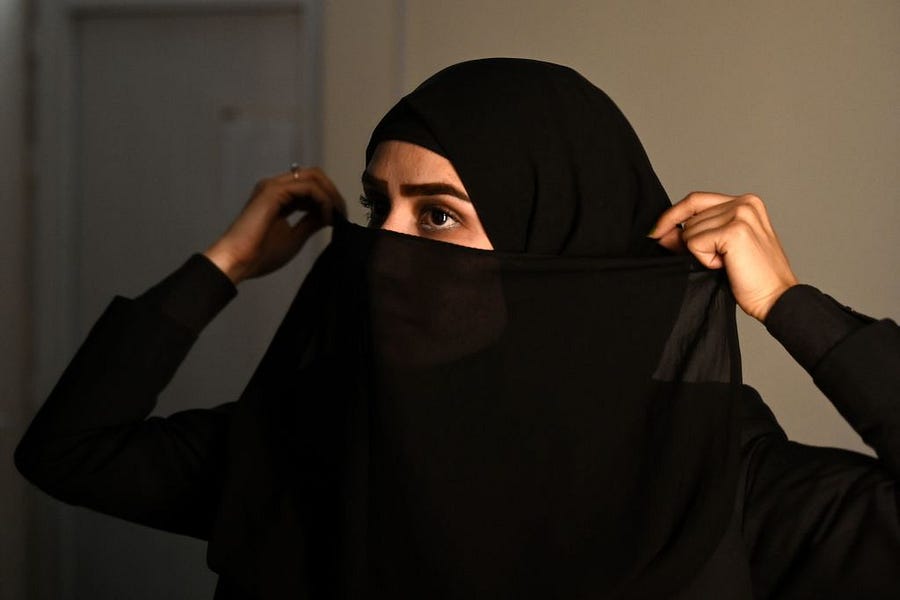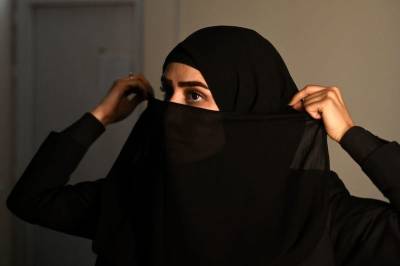In a matter of just months, the Taliban’s violent sweep of Afghanistan’s provincial capitals reversed a two-decade struggle by Afghan women to equal their male counterparts in academic achievement, political influence, and basic liberties. For Pashtana Zalmai Khan Dorani, an Afghan activist and educator now exiled in Massachusetts, this reversal meant a sudden disruption in her efforts to fill the education gap that existed even pre-U.S. withdrawal.
“This is not a reality, it’s a nightmare,” Dorani recalled thinking at the time of her country’s collapse last summer. “Then it happened and we woke up to the reality.”
After her narrow escape from Afghanistan amid Taliban death threats, Dorani adapted her approach to women’s schooling. The 24-year-old’s non-profit organization, LEARN, now provides an underground education to around 400 girls in four different regions of Afghanistan in undisclosed locations.
But at the same time that it targeted female activists like Dorani, the Taliban spent its early days as Afghanistan’s de facto sovereign trying to persuade the West that its Islamic Emirate was up to the task of governance. Central to this endeavor: paying lip service to the rights of Afghan women.
“Our sisters, our men have the same rights; they will be able to benefit from their rights,” Taliban spokesman Zabihullah Mujahid said on August 17, as the final U.S. troops evacuated Kabul. “They can have activities in different sectors and different areas on the basis of our rules and regulations: educational, health, and other areas. They are going to be working with us, shoulder to shoulder with us.”
Not many Afghans or experts bought the act, and for good reason. By day’s end, Taliban leadership announced the “indefinite suspension” of female journalists working at state-run television channels. The directive was just the beginning of the Taliban’s systematic dismantling of women’s rights nationwide.
The Taliban’s most recent restriction on Afghan women hits at the heart of this debate. Early this month, the group issued a decree requiring women in public to wear either a full-covering burqa or a niqab, a black veil with only a thin slit through which eyes can be seen. And on May 21, the Ministry of Vice and Virtue mandated that all remaining female anchors on news stations wear masks during broadcasts.
“It was very difficult for me to run my programs while having a mask on,” Yalda Ali, a female presenter, told Afghanistan’s TOLOnews. “I was very uncomfortable.”
Male and female journalists across the world—including in Afghanistan—have since donned masks in solidarity with the women in the viral Twitter campaign #FreeHerFace.
Last week, the United Nations Security Council issued a statement calling on the Taliban to “swiftly reverse the policies and practices which are currently restricting human rights and fundamental freedoms to Afghan women and girls” and “adhere to their commitments to reopen schools for all female students without further delay.” But according to Afghan activists, the world’s leading countries have taken few if any concrete steps to ensure the policies they publicly support are implemented in Afghanistan.
The Taliban’s actions should surprise no one.
“We always had the example of what was going on in Taliban-controlled areas, which were growing over recent years, and we know that what was happening is pretty much what’s happening across the whole country now,” Heather Barr, associate director of the Women’s Rights Division at Human Rights Watch, told The Dispatch. “The situation for women in Afghanistan on August 14 was really difficult … But it was night and day compared to the situation now.”
The new reality now facing women inside occupied Afghanistan stands in stark contrast to promises of tolerance the Taliban proffered and that the U.S. and its allies tacitly accepted last summer. In the final days of the U.S. military evacuation from Afghanistan in August, the State Department publicly regarded the extremist group as its “partner” as it encouraged the formation of a diverse, tolerant Afghan government. At State’s disposal to continue to shape Afghanistan’s civic society post-withdrawal, U.S. officials claimed, was the Taliban’s desire for international recognition and assistance.
“An Afghanistan, as I’ve said before, that does not respect the basic rights of its people, that does not have a representative and inclusive government, that does not abide by the main gains of the last 20 years is an Afghanistan that will be a pariah state, certainly for the United States, and I believe for the international community,” Secretary of State Antony Blinken told reporters in August.
Several United Nation officials and world leaders also urged the Taliban to reform policies at the core of its religious and ideological beliefs, but to no avail. Even as Afghanistan stares down one of the world’s most dire humanitarian crises—preventable only with outside help—the Taliban’s restrictions on women have only expanded as it consolidates power and imposes its societal vision.
“There was a lot of magical thinking that went on, and a lot of pretending to believe things that people didn’t really believe. I don’t think any of it was surprising, and I think that anyone who was listening to Afghan women knew better,” Barr said. “It was a way of face-saving for the U.S. and others to act like the Taliban had changed.”
“What we’ve seen from the international community is a response which has lacked leadership. I think the U.S. really disengaged on the first of September … And no one else has stepped up to take on a leadership role,” Barr added. “Everyone seems to agree that denying girls access to secondary education is wildly unacceptable, but somehow that hasn’t turned into a set of coordinated responses.”
And indeed, the Taliban’s stance on women’s issues was transparent even as it sought to convince the West of its good intentions. Shortly after its takeover in August, the Taliban published an op-ed to its official government website entitled “Liberalism is Unneeded for Women’s Rights.” While the Taliban’s religious doctrine upholds the dignity and autonomy of women, the author argued, it does so “within the Islamic framework.”
“Liberals must explain more than they question. They must explain and prove the liberal presuppositions lying in their interrogations and accusations,” the article asserted. “Alongside asking, for example, why a Muslim woman must be legally obliged to wear hijab in an Islamic state, they too must explain why she should have the freedom not to.”
As the Taliban solidified its grasp on districts across Afghanistan last summer, its leaders ordered women to stay home unless accompanied by a male escort out of purported concern that its fighters hadn’t been trained to respect women. In September, the group resurrected the infamous “Ministry for the Propagation of Virtue and Prevention of Vice” from its previous reign, displacing the fallen government’s Ministry of Women’s Affairs. By mid-September, the Taliban had effectively barred girls from attending secondary school, a restriction now on its 255th day and counting.
But Afghanistan’s women remain committed to their 20-year fight for equality, even as international attention to their plight fades. Despite the risk of arrest, kidnapping, or even extrajudicial execution facing female activists in Afghanistan, protests persist.
And for Dorani, the founder of LEARN, pursuing an education is its own form of resistance.
“There’s a huge fight that is in front of us and everyone is trying to fight it in their own way,” she said in an interview with The Dispatch. “Everyone has a collective and an individual battle against the Taliban, and we’re all trying to fight it.”







Please note that we at The Dispatch hold ourselves, our work, and our commenters to a higher standard than other places on the internet. We welcome comments that foster genuine debate or discussion—including comments critical of us or our work—but responses that include ad hominem attacks on fellow Dispatch members or are intended to stoke fear and anger may be moderated.
With your membership, you only have the ability to comment on The Morning Dispatch articles. Consider upgrading to join the conversation everywhere.